The Pro's Provide Us A Show!
Did you know? - A skins game pits players in a type of match play in which each hole has a set value (usually in money or points). The player who wins the hole is said to win the "skin," and whatever that skin is worth. Skins games may be more dramatic than standard match play if it is agreed by the players that holes are not halved. Then, when any two players tie on a given hole, the value of that hole is carried over and added to the value of the following hole. The more ties, the greater the value of the skin and the bigger the eventual payoff.
Let The Game Begin

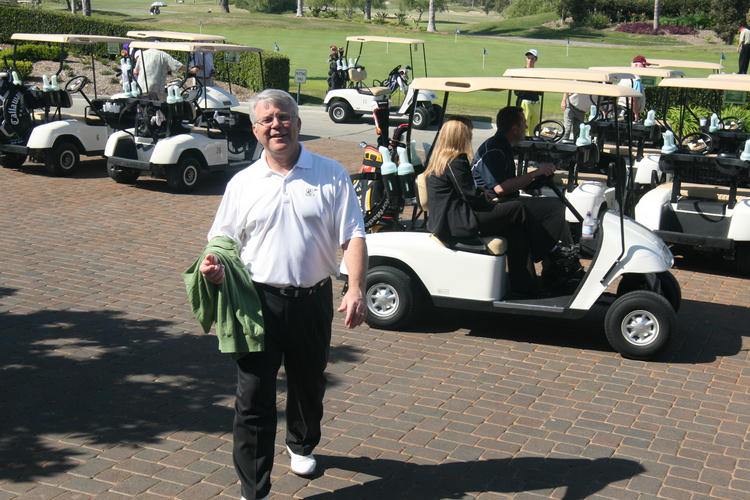
The GM gets it started!

Todd is ready to go!

Watch the wiley old guys, right Walt?
The Fearless Leader...


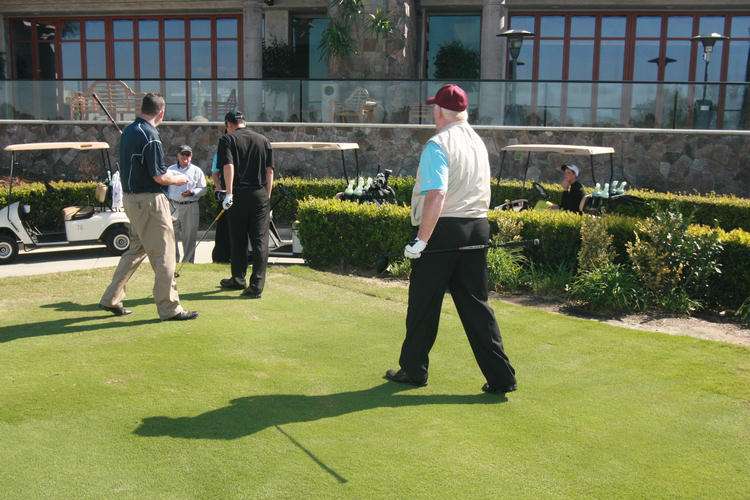

"Now guys, here are the rules"
Did You Know? The term "THAT'S HOW THE COW ATE THE CABBAGE" is an expression to indicate the speaker is laying it on the line, telling it like it is, getting down to brass tacks - with the connotation of telling someone what he or she needs to know but probably doesn't want to hear.
The Pro's Are Ready To Go!
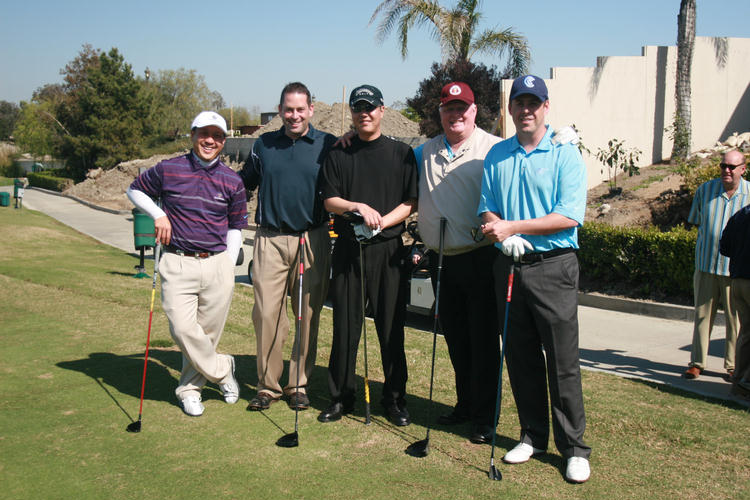
Did You Know? The great majority of professional golfers (at least 95%) make their living from teaching the game, running golf clubs and courses, and dealing in golf equipment. In American English the term golf pro refers to individuals involved in the service of other golfers. The senior professional golfer at a golf club is usually referred to as the club professional, but at a large golf club or resort with several courses his job title is likely to be director of golf. If he or she has assistants who are registered professional golfers, they are known as assistant professionals. A golfer who concentrates wholly or nearly so on giving golf lessons is a teaching professional, golf instructor or golf coach.
Watch For The Mid-Air Ball!



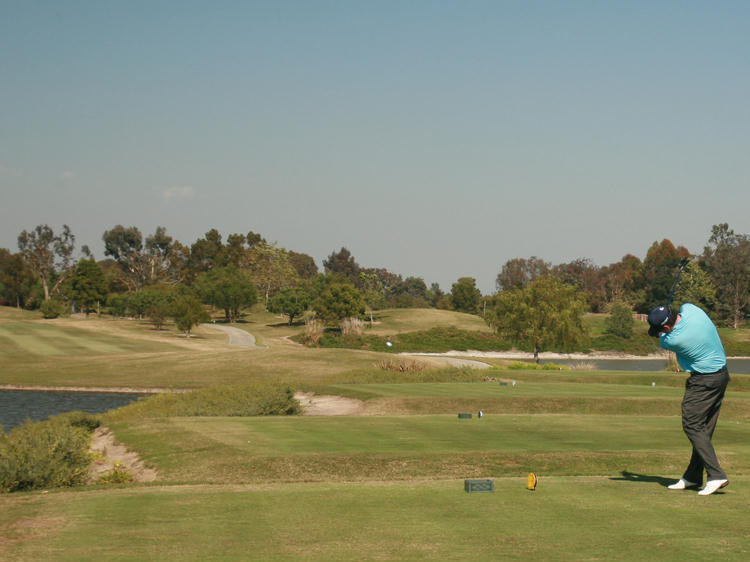
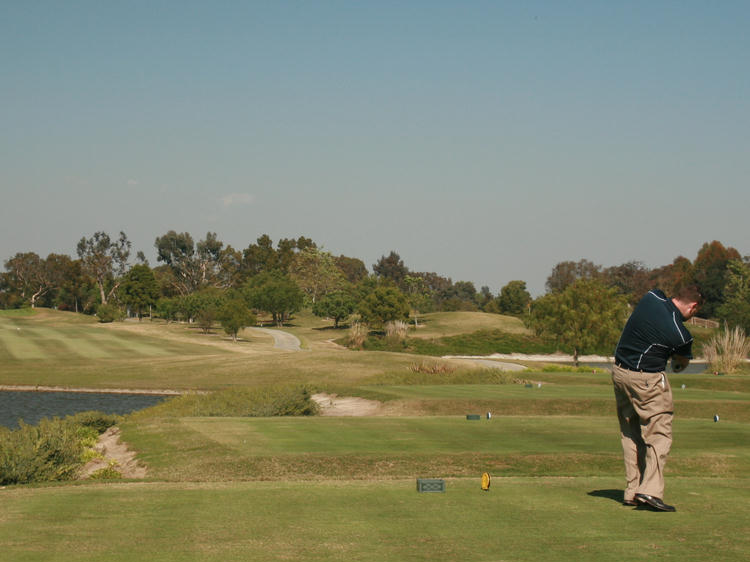

Many Watched The Game Unfold


Some watched on from great vantage points...
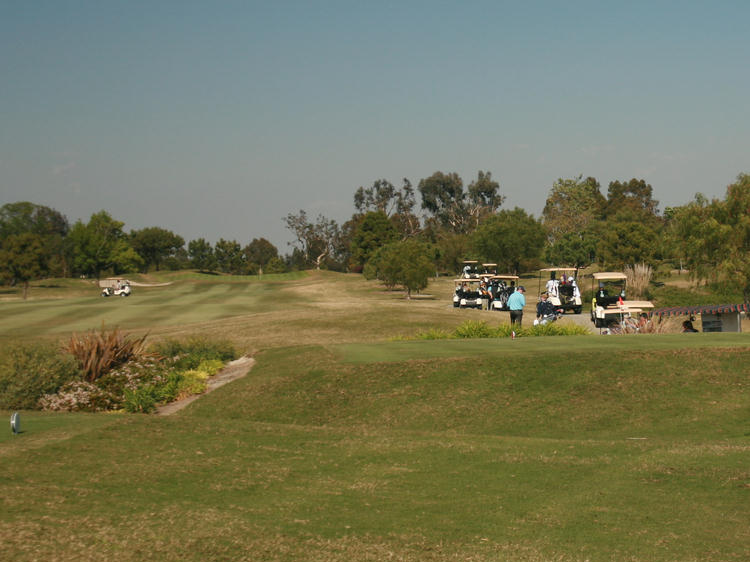

The most important person in the game!


Julie watches Jason prepare for putting.

Hey... We are supposed to be playing the 10th hole!
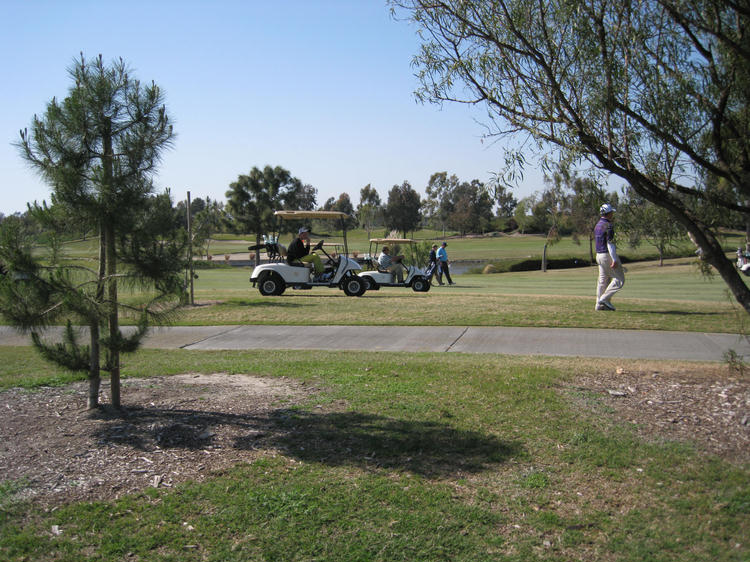
Carefully the spectatots creep up on the hole!
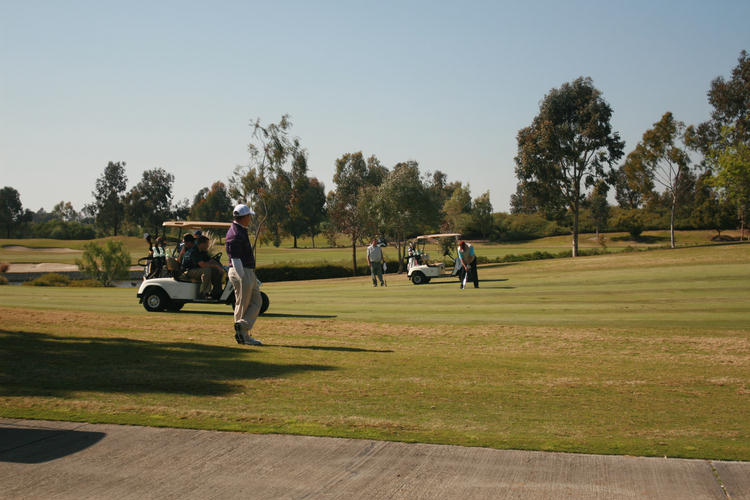
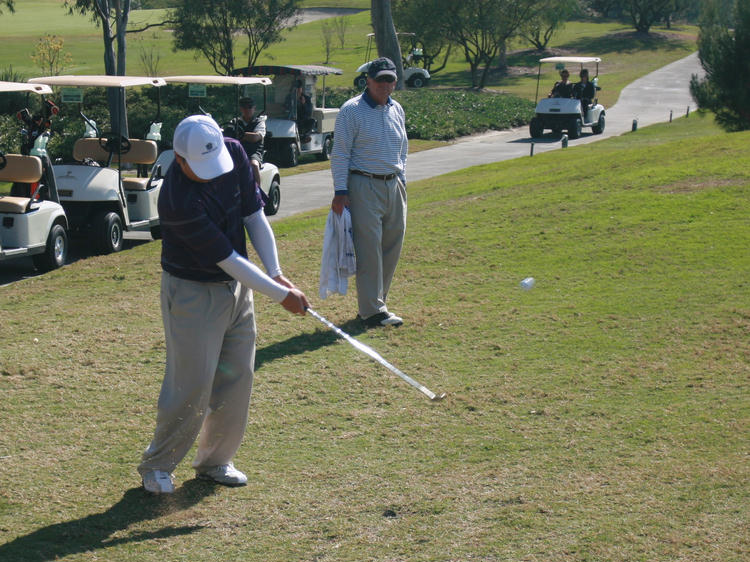
Up up and away!
Did You Know? Gene Sarazen began win tournaments in 1935 with a new club he had invented that was specialized for sand play. He is hailed as the inventor of the sand wedge. However, history goes about 3 years further back than that. "Spoon" clubs offered varying degrees of loft and allowed players to scoop their ball out of sand traps and deep rough. As manufacturers became more and more innovative with club design, new types of wedges appeared. Some had concave faces, others featured deeply grooved faces, but not all of these designs conformed to USGA and R&A regulations, and many were banned. With the concave-faced wedge having been outlawed in 1931, Sarazen designed his sand wedge with a straight face. Another modification that he made was to add extra lead to the front edge of the club face, allowing it to cut through the sand more smoothly. After he won the 1932 British and U.S. Opens with the help of his new club, its popularity quickly grew.
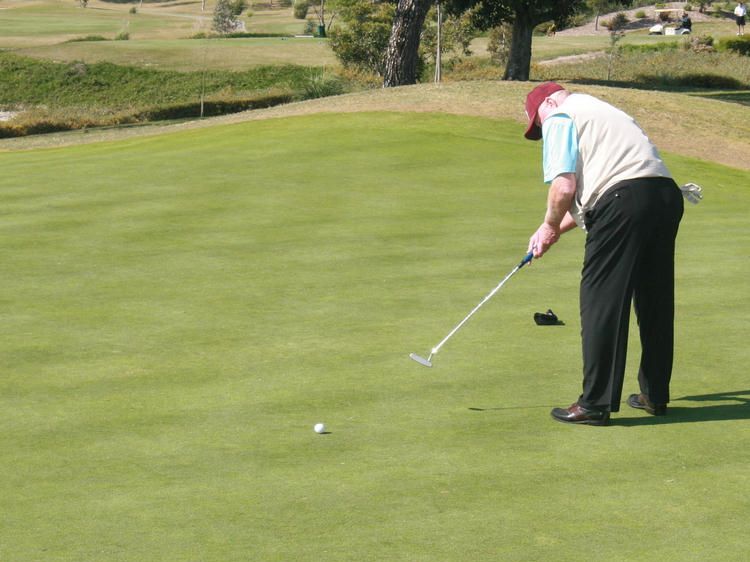


Mike and Jason discussing what drinkto order.
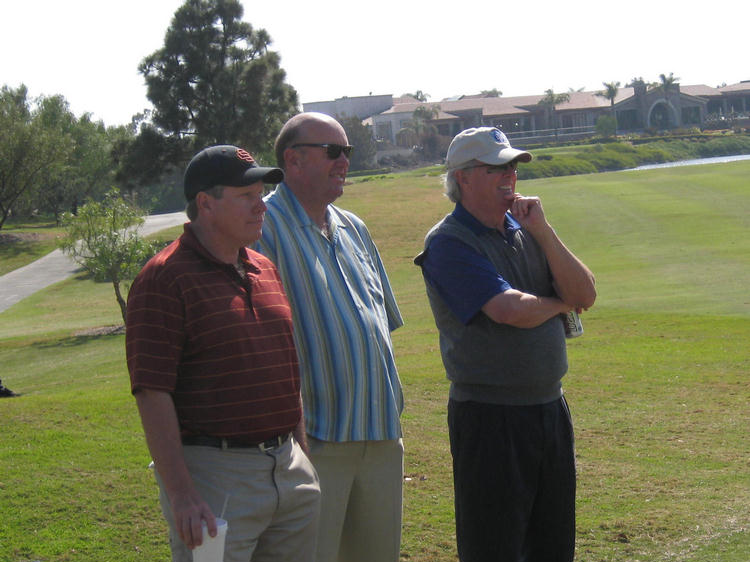
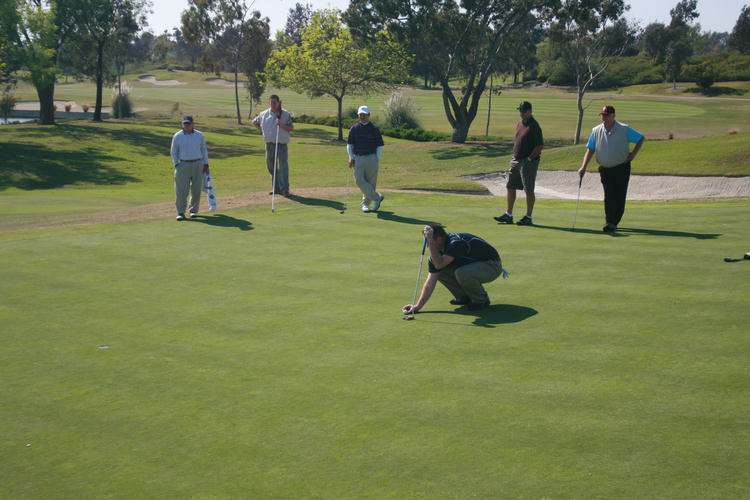
Being young has its advantages... They can get up and down easier!
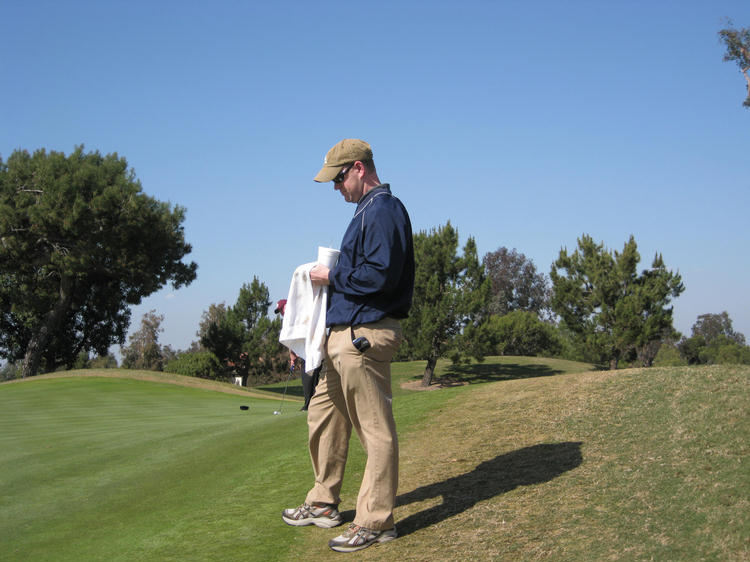
Did you know? - In golf, a caddy (or caddie) is the person who carries a player's bag, and gives insightful advice and moral support. A good caddy is aware of the challenges and obstacles of the golf course being played, along with the best strategy in playing it. This includes knowing overall yardage, pin placements and club selection. A caddy is not usually an employee of a private club or resort. He is classified an an "independent contractor," meaning that he is basically self employed and does not receive any benefits from his association with the club. Of course, some clubs and resorts do have caddy programs, although benefits are rarely offered. The term caddie comes from the french word, le cadet, meaning the boy. The term caddie or cadie first appeared in the English language in the year 1634.
Traditional caddying involves both the golfer and the caddie walking the course. The caddy is in charge of carrying the player’s bag, with the caddie out in front of the player. This is the most common method used in golf clubs and is the only method allowed in the PGA (Professional Golf Association) and LPGA (Ladies Professional Golf Association). "Fore-Caddying" entails the caddie running while the players ride in carts. The fore-caddy will give a hole description and then run ahead to spot the players tee shots. The caddie then gets the players yardage (either with a laser, course knowledge, or sprinkler heads) while the players drive their carts from the tee to their shots. The caddy runs ahead again to spot the golfers next shots. This process is continued until the players reach the green. Once on the green the caddie will read greens (if asked per proper golf etiquette), clean golf balls (if asked), fix ball marks, and attend the flag if asked. The caddie is also responsible for raking traps and filling divots on the course. Caddies will help with club selection, reading greens, weather variables, and marking balls on the green but should only do so if asked to by the player. More than anything else, the caddy is there to make the players round enjoyable by taking care of menial tasks, speeding up play, and providing mental support if asked.
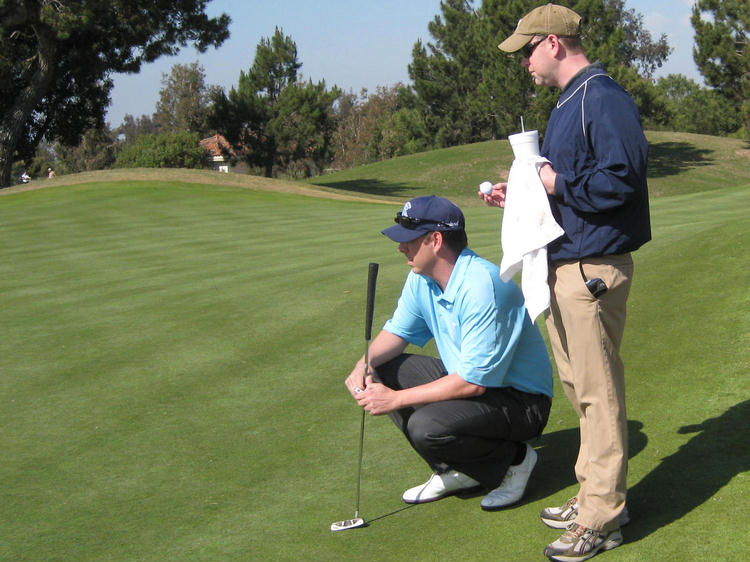
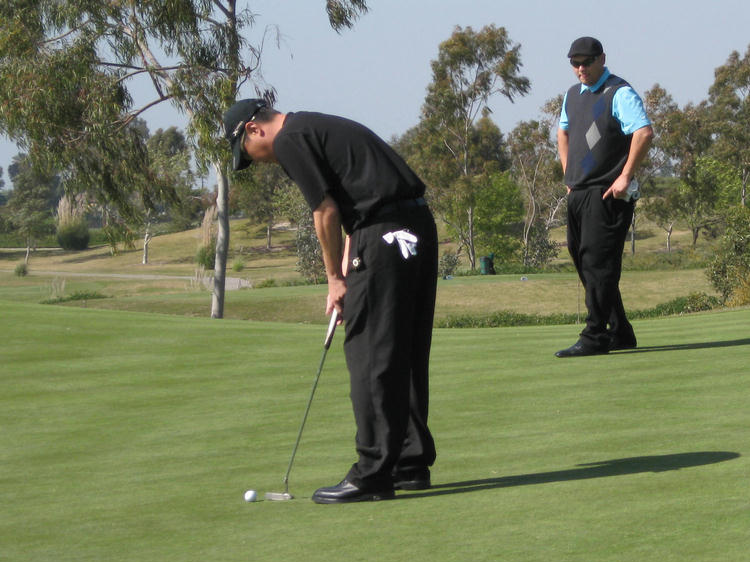
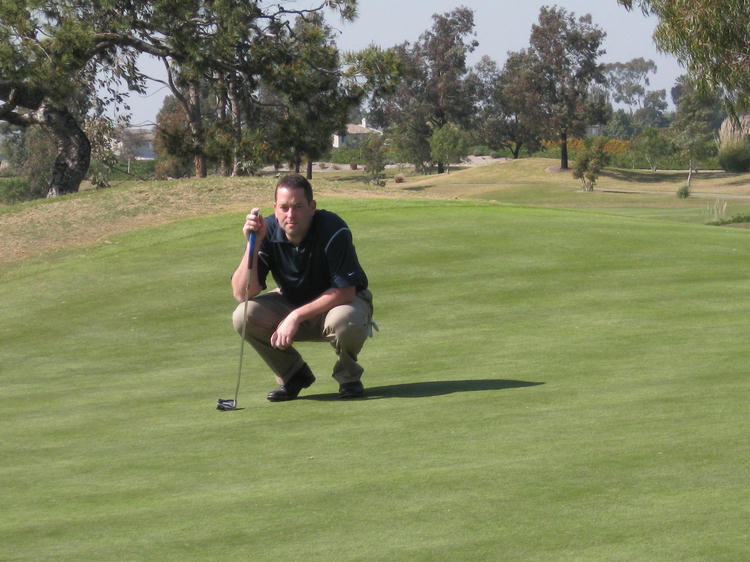
OK, Move On To #11 (An Easy 3-Par)

Brave Souls Await The Arrival Of The Balls

Plunk! "What was that?"
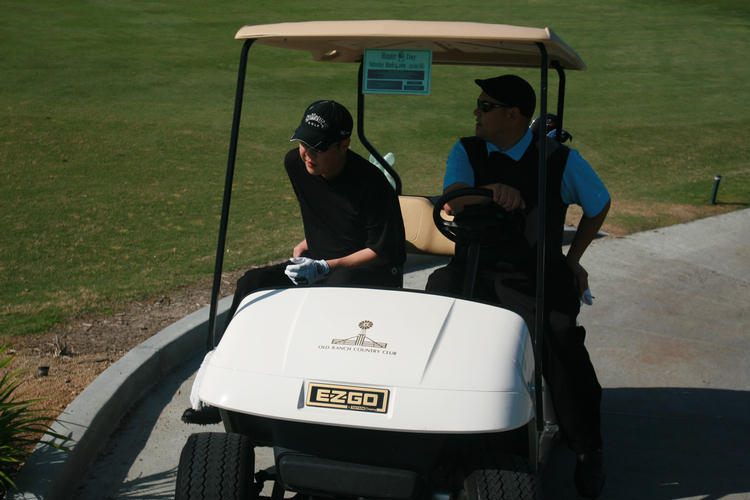
Minkee and crew chief arrive in their limo



Steve studies the wind conditions
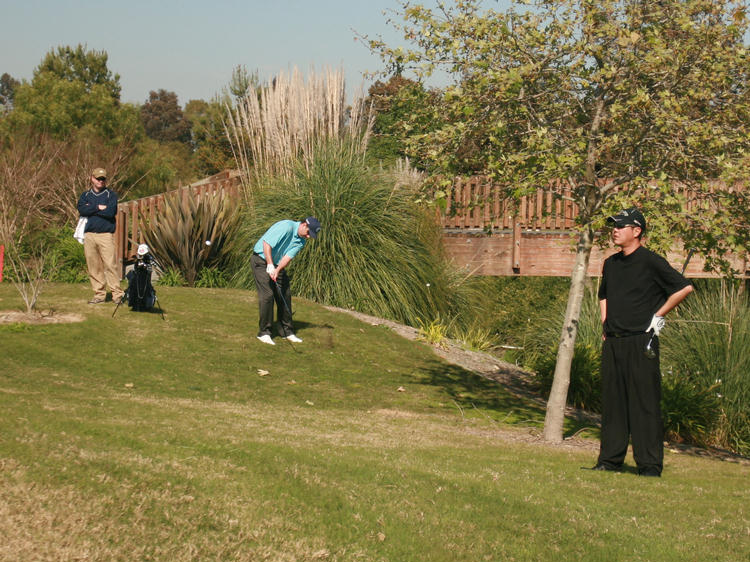
Wonk! Who has the divot mix?

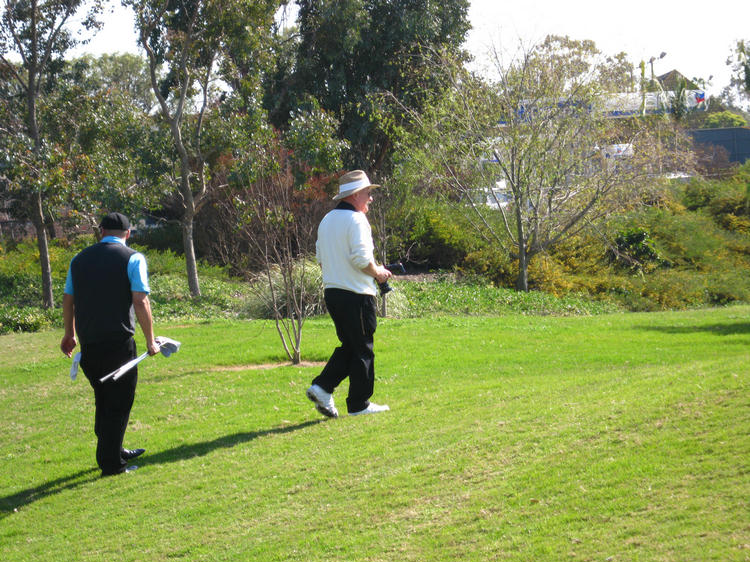
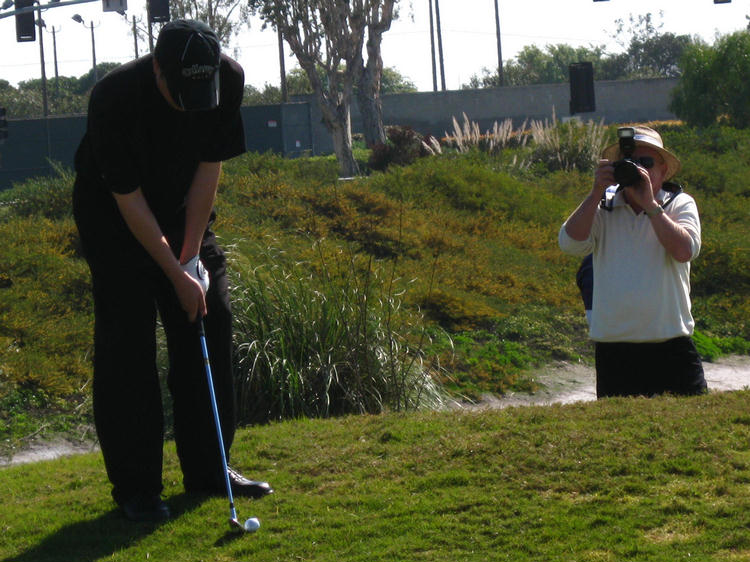
Did you know? - A divot is the chunk of grass (either fairway or rough) displaced when club is swung. The indentation on the green caused by the ball on an approach shot is called a pitch mark or ball mark, not a divot.
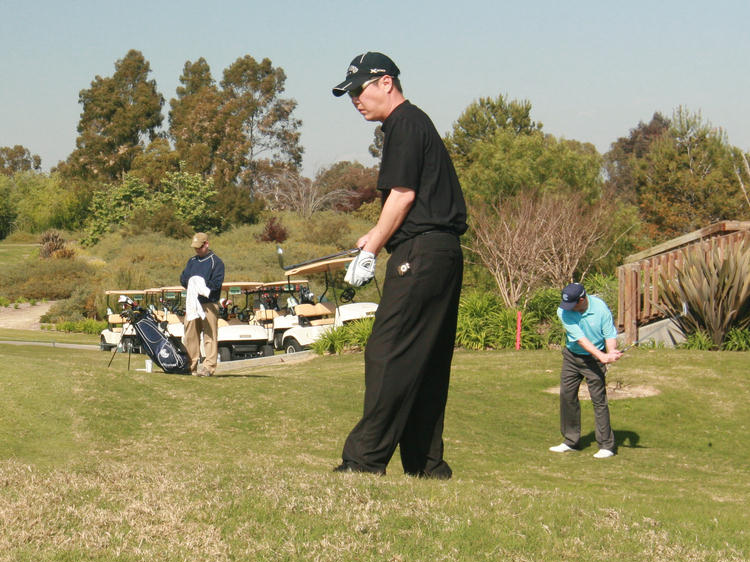
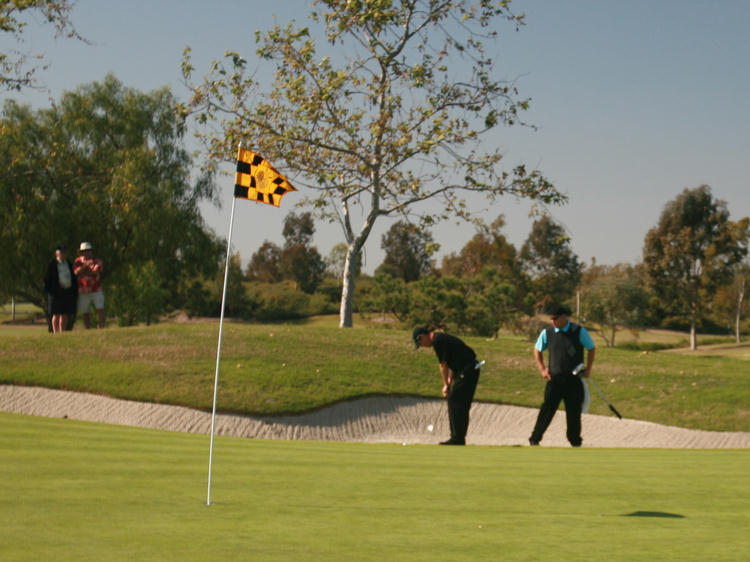
Right on the edge
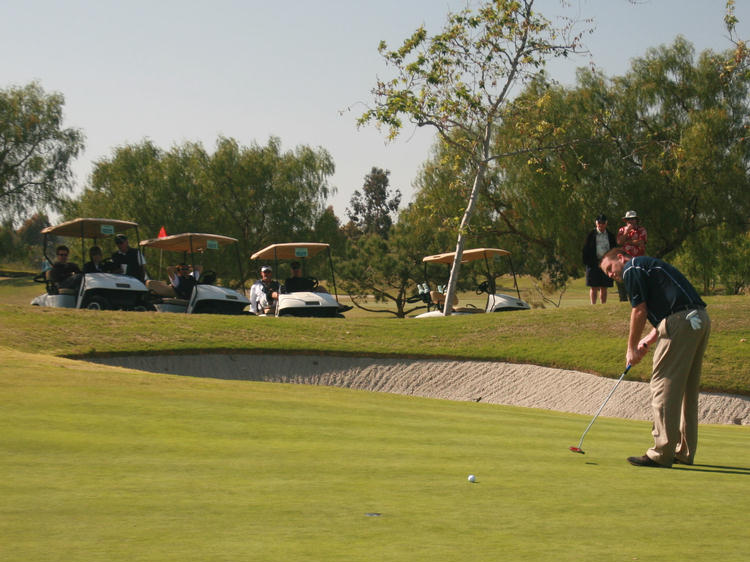

On To Hole #12
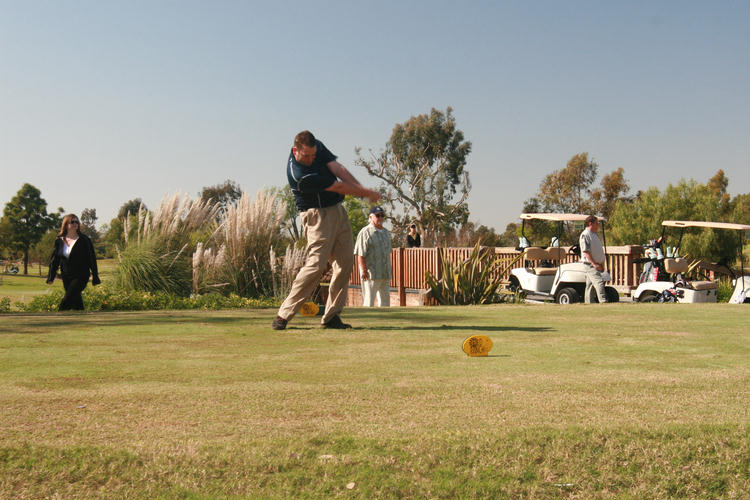
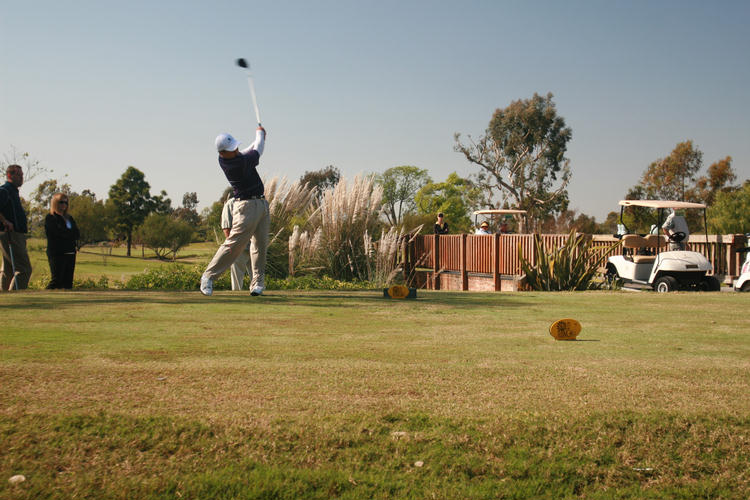
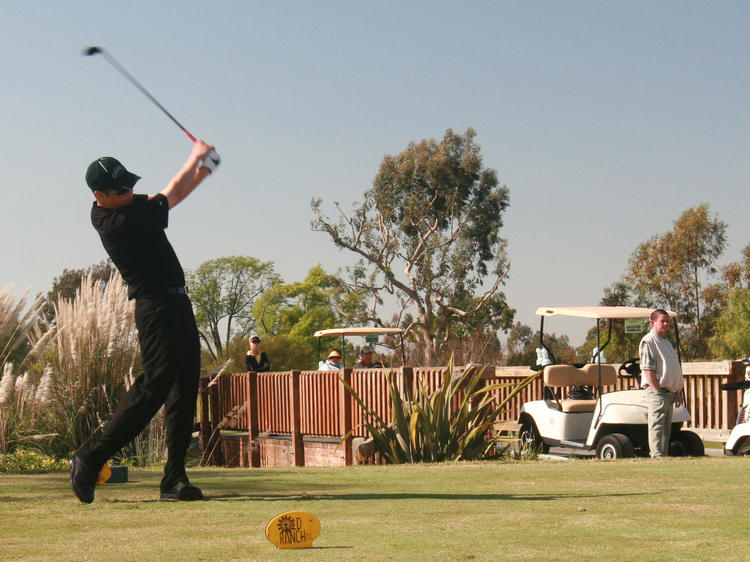
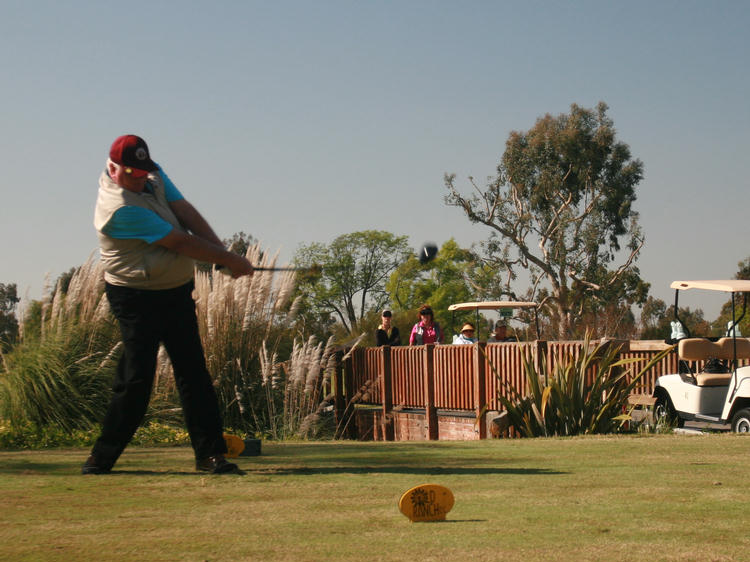

Change side for the lefty!
